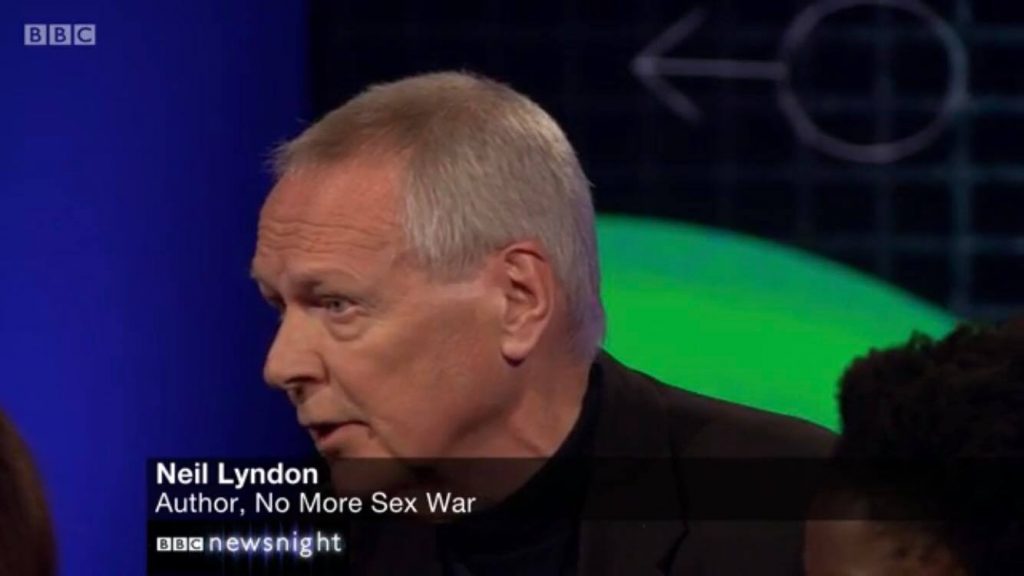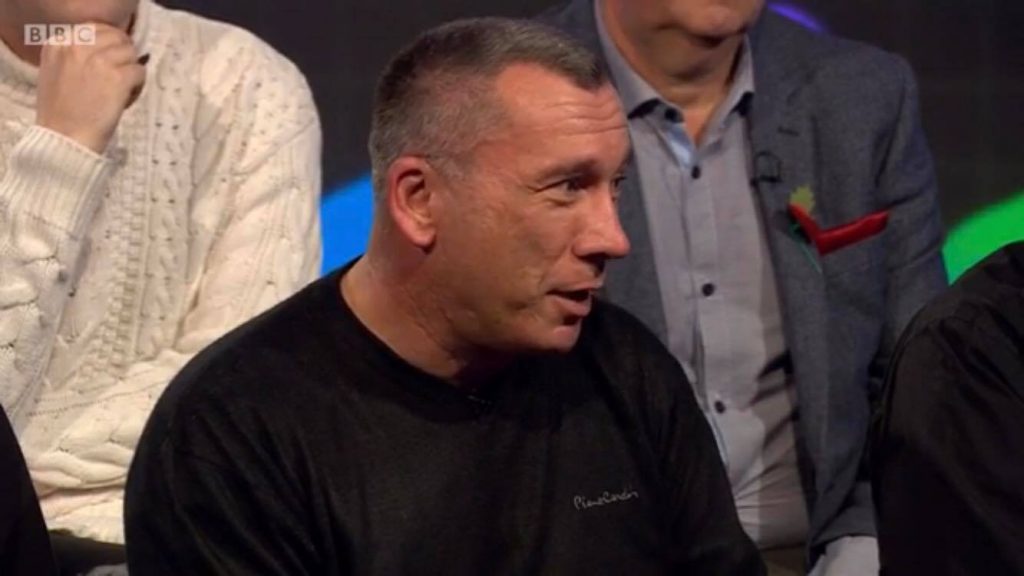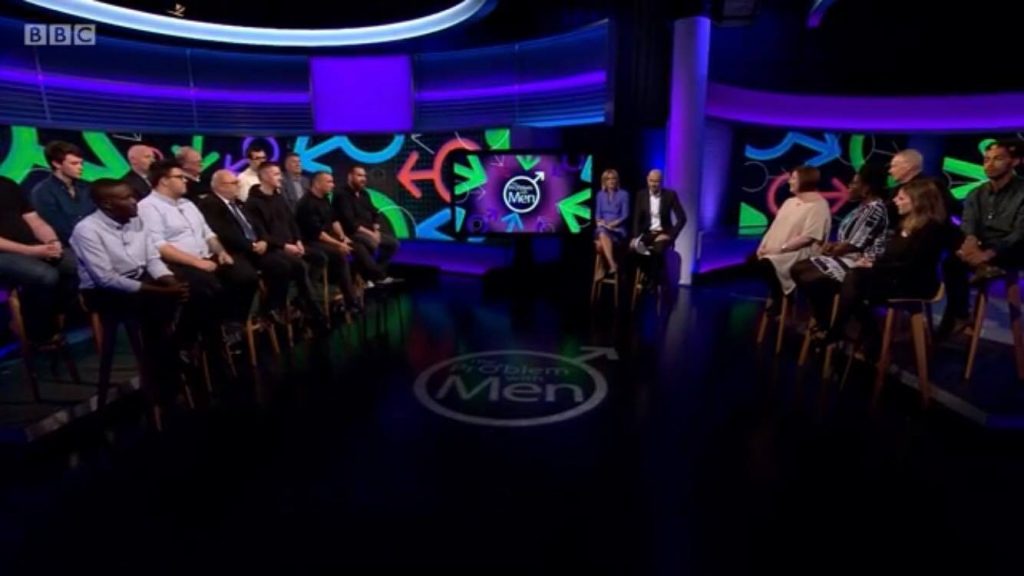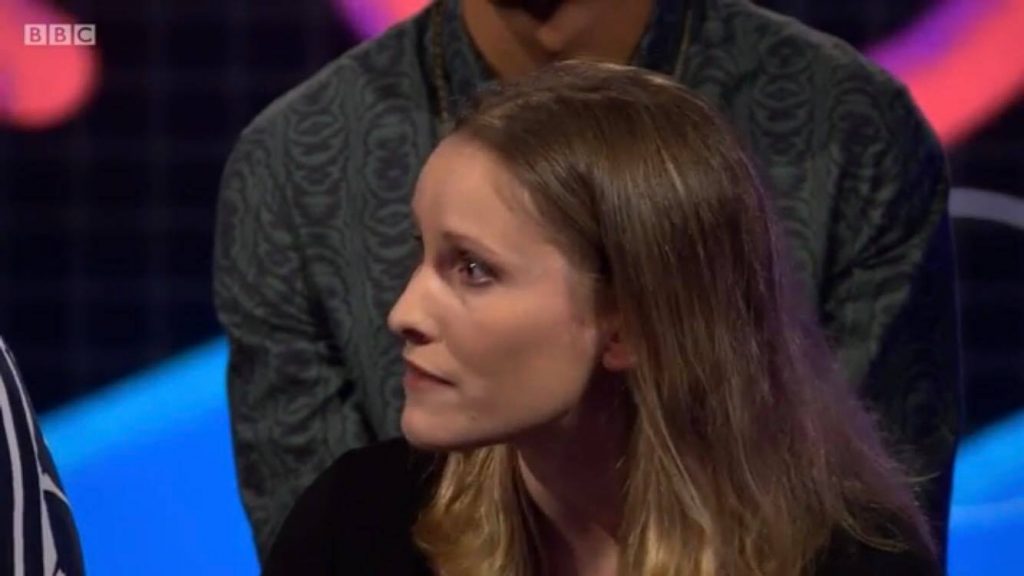
The Newsnight panel that sparked debate
Tom Sharman, 21, head of social media at Campus Society, told the Voice of London: “The BBC contacted me asking if I’d take part in a live debate on masculinity and I accepted. Only to arrive in the studio 15 minutes before air to discover the conversation (and show’s title) focused on ‘The Problem with Men’ and sexual harassment.”
He said he never would have shown up on Wednesday, if he had known the reality.
Newsnight centred the debate around sexual harassment; what was deemed correct contact with women and what was not – whilst the discussion went on ‘The Problem With Men’ was the title shown on screen alongside the speakers.
Tom Sharman explained that he felt “lied to” and suggested that this lie was generated in order for the BBC to be “controversial” and to start a debate on social media – and that it did, Newsnight trended at number one in the world for 16 hours after it was aired.

The programme hosted by Evan Davis, produced a huge debate about the inequality of gender on the panel.
Why was it a majority male panel, debating the sexual harassment of women?
Tom felt out of place: “I and the eleven men surrounding me shouldn’t have been there. If we wanted to talk with men on this, bring in experts or at worst, maybe three or four guys. Or better yet, bring victims, survivors and the women who’ve felt the full force of sexual harassment. Not me.”

Tom went on to say: “It seemed odd to have such a large male crowd discuss such a topic, especially facing just three women on the other side of the studio.” Credit: Tom Sharman.
One young speaker, Tom Higgins, spoke out against the gender imbalance on the night and said: “We as a group of men are trying to define what women are feeling and that’s utterly impossible. Why are we even trying?”
On the programme that broadcasted the night that Michael Fallon resigned, many panellists were confused about what contact with women was okay and what was not. This highlighted a need for a stronger female presence to discuss the issue effectively.

Tom Higgins was keen to express that men had no place discussing sexual harassment towards women. Credit: BBC Newsnight
Tom Sharman expressed his opinions further in Tyro Magazine: “I’ve never been sexually assaulted nor have I ever sexually assaulted anyone. So why are my opinions valid and why did I need to be heard?”
Many of the older panellists felt as though the line was unclear and the issue of sexual harassment has been over-dramatised.
One man said: “I used to have a laugh and a joke with women and be able to muck around with them”.
In the wake of the Harvey Weinstein sexual scandal, he suggested women have become over sensitive to the slightest touch and he cannot laugh with women “as much”.
Neil Lydon, author of No More Sex War, believed that parents had a lot to answer for regarding sexual harassment. He made reference to a Weinstein allegation where Weinstein was drunk and knocking on the door of an actress.
He said that the woman should have been taught not to open the door to a man in the middle of the night.

Neil Lydon believed that parenting was partly to blame for sexual harassment issues. Credit: BBC Newsnight
Although signs of a victim-blaming culture appeared to crop up, Tom did not believe that this would damage the current #MeToo Campaign.
He said: “The #MeToo campaign is an incredible feature of vulnerable and scared women unifying under terrible circumstances. I hope my voice doesn’t taint or take away from theirs. Listen to theirs, not mine.”
Tom Sharman disagreed with many of those who spoke on Newsnight, he told the Voice of London: “The older guys who expressed these views we’re completely wrong in my opinion. They seem scared of change and are either too afraid or too stubborn to change their ways.”
He continued: “of course, men can laugh with women, I do all the time. I just don’t feel the need to make sexual advances without signal or permission. To our generation it seems so second nature to not touch someone without their permission or wolf whistle at someone. I believe there is hope for the future.”
One elderly man cried ‘PC gone too far’. The topic of sexual assault became watered down to women supposedly getting angry at men for touching their elbows.
Laura Bates, Everyday Sexism Project founder, was particularly angry about how the debate was belittling the issues to the slightest touches, when the problem is clearly much larger and more severe.
She also expressed a sense of frustration about how the BBC made a large comparison to men as animals. The hosts showed the panellists footage of animals in the wild to reinforce this concept.
Laura explained: “It’s [sexual harassment] not an inherited, biological thing that men can’t control. It lets perpetrators off the hook and insults the vast majority of men by suggesting this”.
Tom too found this comparison “bizarre”. He said: “I get the point, men have more testosterone, that’s fact. But I can have more testosterone than a women and still behave in a respectful and appropriate manner. The first time I saw this was when it went out live, I think you can see my face after it airs, of sheer confusion and shock at the clip.”
But Tom wasn’t the only male concerned about the views expressed during the live broadcast.
Jordan Stephens, half of Rizzle Kicks, was overtly confused about how many men in the room were unclear about how to touch women. He said: “It’s bizarre to me that we’re questioning how to interact with another human being”.
Jordan questioned the basic lack of decency and compassion: “objectifying women just needs to kind of not happen ever”.
Jordan expressed his beliefs of a societal issue with “toxic masculinity”.
He said: “Men need space to access their vulnerability” – in order for this not to manifest into a hunger for power.
Tom Sharman said he would have spoken out more if he was to return to the panel, after realising that “the format worked for people who shouted the loudest, not the smartest”.
He also apologises to everyone who watched Newsnight: “I’d like to say sorry. Sorry for not speaking out or better, walking out. Sorry not challenging the older guys or the out-of-touch opinions they shared. I would love for them to read my version of the event.”
He requested to the BBC that next time, a woman should take his seat and a radical rethink of the media industry is in need, and in this case, the BBC are at fault.
Evan Davis signed off the programme to state that it’s “easy to frame this as a battle of the sexes”. However, a battle or not, the armies were unequal.
We have spoken to the BBC for comment but they are yet to reply.
Words: Charlotte Racher | Subbing: Leanne Hall




